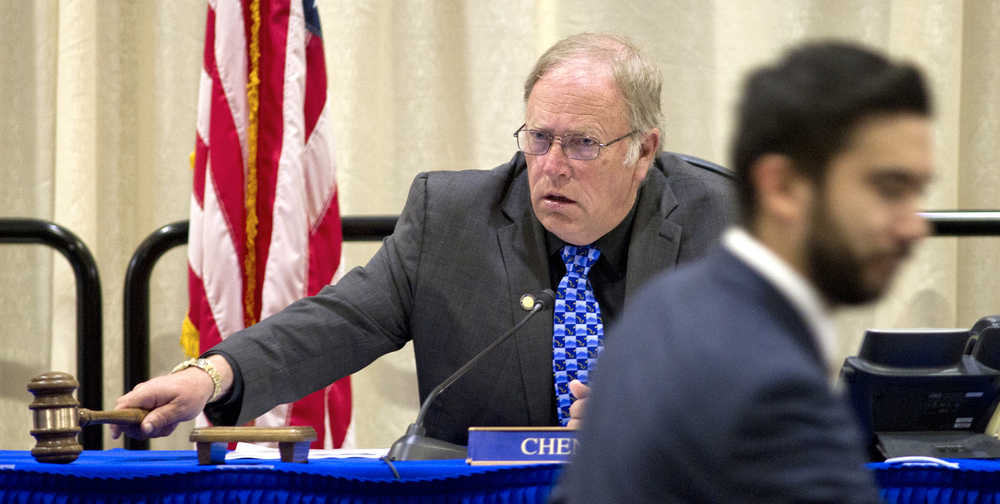The Alaska House Finance Committee has failed to advance the heart of Gov. Bill Walker’s 13-point plan to erase the state’s deficit, leaving the state on track to run out of savings within six years.
About 12:40 p.m. Friday, the committee voted 5-6 against advancing Senate Bill 128 to a vote of the full House.
SB 128, already passed by the Senate, calls for a regular draw from the Alaska Permanent Fund to pay for state services and the Permanent Fund Dividend.
Despite months of advocacy by the governor and his staff in town-hall meetings across the state, many Alaskans remain opposed to the measure, which includes cuts to the Dividend.
On Friday morning, members of the House committee said they were listening to their constituents’ opposition and voting against the bill, even though it would go farther than any other measure to close the state’s deficit and stretch Alaska’s savings accounts for years.
“We have not cut the budget enough, and our constituents don’t support it,” said Rep. Dan Saddler, R-Eagle River, before voting against the advance.
The vote of the 11-member finance committee was not along party lines or caucus lines. Two Democrats (Rep. David Guttenberg, D-Fairbanks, and Rep. Scott Kawasaki, D-Fairbanks) voted against moving the measure forward, while several Republicans voted for it.
Rep. Cathy Muñoz, R-Juneau, has been one of the staunchest supporters of moving the bill to a final vote. Without a fiscal solution this year, she said, the state’s financial health will continue to worsen.
“(Not acting) means that going into the future, after this year and next year, then we’re taking the full amount from the Permanent Fund earnings reserve, and that is not sustainable,” she said.
SB 128, written by Sen. Lesil McGuire, R-Anchorage, and adopted by Gov. Bill Walker as the cornerstone of his 13-point plan to erase Alaska’s multibillion-dollar deficit, calls for 5.25 percent of the average value of the Alaska Permanent Fund to be spent each year on state services and the dividend. The average would be calculated by using five of the previous six years’ Permanent Fund values. The money would be taken from the fund’s earnings reserve, which collects earnings from the fund’s investments.
The fund is expected to average 7 percent earnings per year. That value, minus inflation, would permit a 5.25 percent draw in perpetuity.
The constitutionally protected corpus of the fund would remain untouched, and at high oil prices, the amount of money drawn from the fund would decline.
At current Permanent Fund values, the draw would be $2.4 billion, with about $1.92 billion earmarked for state operations.
In this year’s already-approved budget, that money would replace planned withdrawals from the state’s Constitutional Budget Reserve.
Drawing money from the Permanent Fund’s earnings reserve would affect the dividend in a significant way. The version of SB 128 passed by the Senate earlier this month would result in a guaranteed $1,000 dividend through 2019. Without SB 128, the dividend is expected to be about $2,000 this year.
A modified version of SB 128 considered by the House committee Thursday would guarantee the dividend at $1,500 this year and next
Revenue Commissioner Randall Hoffbeck warned the committee before their vote that if SB 128 is not passed this year, the state will be unable to enact it next year. The state will no longer have enough savings to make as large of a sustainable draw.
Rep. Tammie Wilson, R-North Pole, said she believes lawmakers have not justified a “yes” vote to their constituents.
Hoffbeck responded, “They vote for you … for your judgment to make decisions and make these hard decisions. … I think they expect you to use your judgment.”
“I have no problem making hard decisions. This decision is completely different … this is not our money,” Wilson said, referring to the Permanent Fund.

